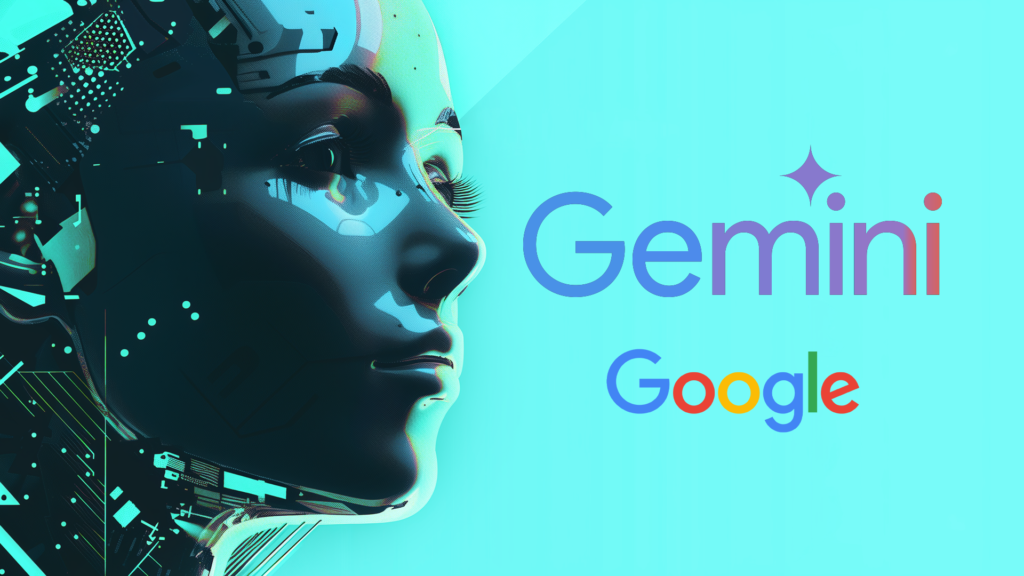Google’s AI chatbot is getting faster and smarter

Google is upgrading Gemini: The free version now runs on the faster 1.5 Flash model. Users benefit from improved answers, a larger context window and new functions. The integration into other Google services has also been expanded. Google is continuing to push forward with the development of its AI chatbot Gemini. As the company announced in a Blog post announces, the free version of the service is now receiving a comprehensive update that significantly increases speed and functionality.
Performance boost through 1.5 Flash
The heart of the update is the integration of the new language model Gemini 1.5 Flash. This should not only shorten response times, but also improve the quality of the generated content. Google claims to have made progress in both argumentation and image understanding. Another important point is the enlargement of the context window. Instead of 8,000, Gemini can now process 32,000 tokens simultaneously. One token corresponds to around 4-5 characters or 0.75 words. For users, this means that they can provide the chatbot with much more extensive texts and information for analysis. This extension enables more complex tasks and more in-depth conversations. Video format not supported
New features for everyone
With the update, Google is also democratizing some of the previously exclusive features of the paid Gemini Advanced version. The basic version will soon be able to process uploaded files. Users will then be able to include documents from Google Drive or from their local device in the conversation. This innovation opens up new application possibilities:
- Analysis of large data sets
- Creation of exercises based on learning materials
- Visualization of results through diagrams or graphs
Improved fact checking
To counteract the problem of AI hallucinations – i.e. fictitious information – Google is introducing new functions for checking and citing sources. For factual queries, Gemini now shows links to relevant websites, similar to a classic search engine. A special feature is the integration of Gmail data: If the user allows this, Gemini can also search for topic-relevant information in personal emails and cite these as sources. Google states that this function is initially only available for English-language queries in selected countries, including Germany. Gemini has also been offering a “double check” function for some time. This makes it possible to automatically compare generated answers with Google search results. This allows users to quickly see whether the chatbot’s statements match generally available information or whether there are contradictions.
Gemini grows
Google is increasingly integrating Gemini into other company services. The AI assistant is now also available in the EU via Google Messages on Android devices. However, the offer is initially limited to French, Polish and Spanish. A German version is to follow shortly. The push towards younger users is also interesting. With “Gemini Teens”, Google is providing a specially adapted version for young people aged 16 and over. This version contains additional security precautions and an induction process that is intended to teach the responsible use of AI technologies.
AI search remains selective
While Gemini is being continuously expanded as a standalone chatbot, Google is taking a more cautious approach to integrating AI into classic web search. The so-called “AI Overviews”, which provide AI-generated summaries for certain search queries, are, according to a study by the SEO platform SearchengineLand only used in about 15 percent of all search queries. Google emphasizes that this function is only activated if it offers real added value.
What happens next?
With the current updates, Google is positioning Gemini as a serious competitor to other AI chatbots such as ChatGPT or Claude. The expansion of the free offer could help to increase the user base and collect valuable data for the further development of AI. At the same time, the increasing integration of AI functions in various Google services raises questions about the future design of the digital information landscape.
How will the relationship between classic web search and AI-supported answers develop? And what impact will this have on the way we search for and process information on the Internet? Competitor OpenAI announced its own AI-based search engine, SeachGPT, just on Friday. Have you already taken a closer look at Gemini 1.5 Flash? We are curious to hear your first impressions and experiences with the upgraded AI assistant!
Digital marketing enthusiast and industry professional in Digital technologies, Technology News, Mobile phones, software, gadgets with vast experience in the tech industry, I have a keen interest in technology, News breaking.









